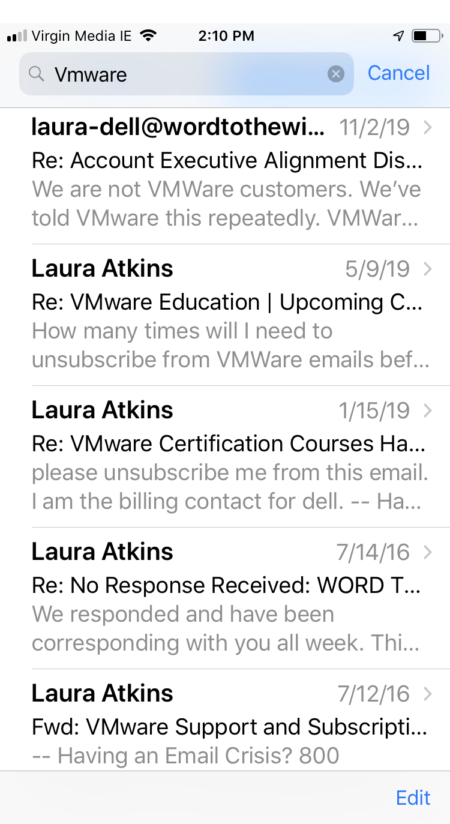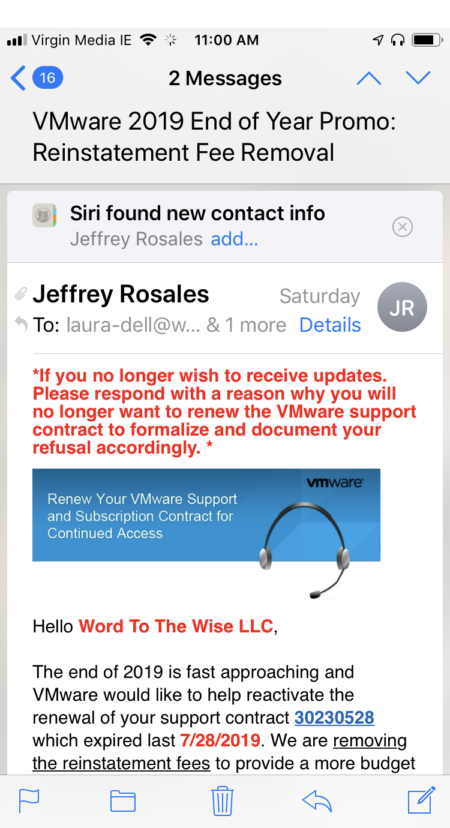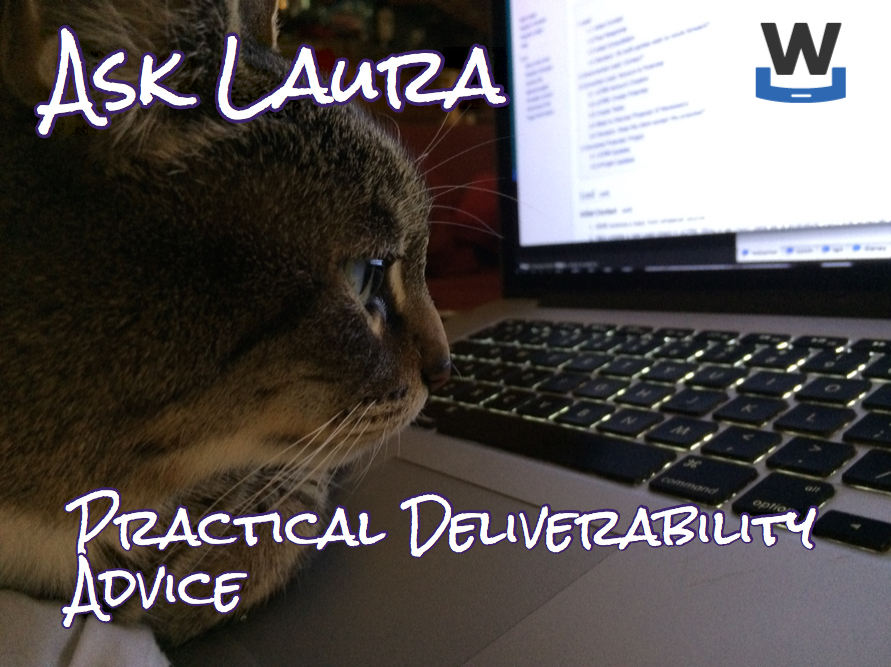It’s not marketing… it’s harassment
Many years ago, we bought a VMWare license to manage the various virtual machines running our business infrastructure. As part of our move to Dublin, we decommissioned our cabinet and moved all of services into various bits of the cloud. This meant that when our VMWare support contract came up for renewal we declined the renewal.
Despite no longer being customers and unsubscribing from email, I’ve had ongoing problems getting VMWare to leave me alone. They keep sending me email, despite unsubscribing through various channels. I’ve clicked on links, I’ve responded to emails. This is what my outgoing mailbox looks like when I search for @vmware.com:

What prompted the search was yet another email from VMWare this weekend:

The documentation of our refusal to renew our VMWare support contract was completed over the summer. VMWare was extremely persistent in their emails then, too. We were asked to fill out multiple pages of documents, to ‘prove’ we were no longer using VMWare software. Even after we provided written assurances we were not using VMWare software they continued to send mail, telling us that the mail was automated and there was no way for them to stop us from getting it. That’s OK, we can stop the mail, and the address doing the harassment was the first email address fully blocked on our mail server.
This mail from VMWare is no longer marketing. This is, in fact, harassment. I’ve asked repeatedly for VMWare to stop contacting me. I even have a note from June of 2013 marking I requested unsubscription from their lists on 6/24. I don’t record all of my unsubscribes, only the ones where it seems I’ve asked before and they won’t stop.
CAN SPAM, and many other laws, say that a company has to stop sending email when the recipient opts-out. I’ve opted-out, but continue to receive email with little recourse other than expanding the block to all mail from VMWare. I really hate doing that, but as they appear to be unable to accept an opt-out, we may have no other choice.
Trust me, if we decide to use VMWare for virtualisation I know how to reach them.
